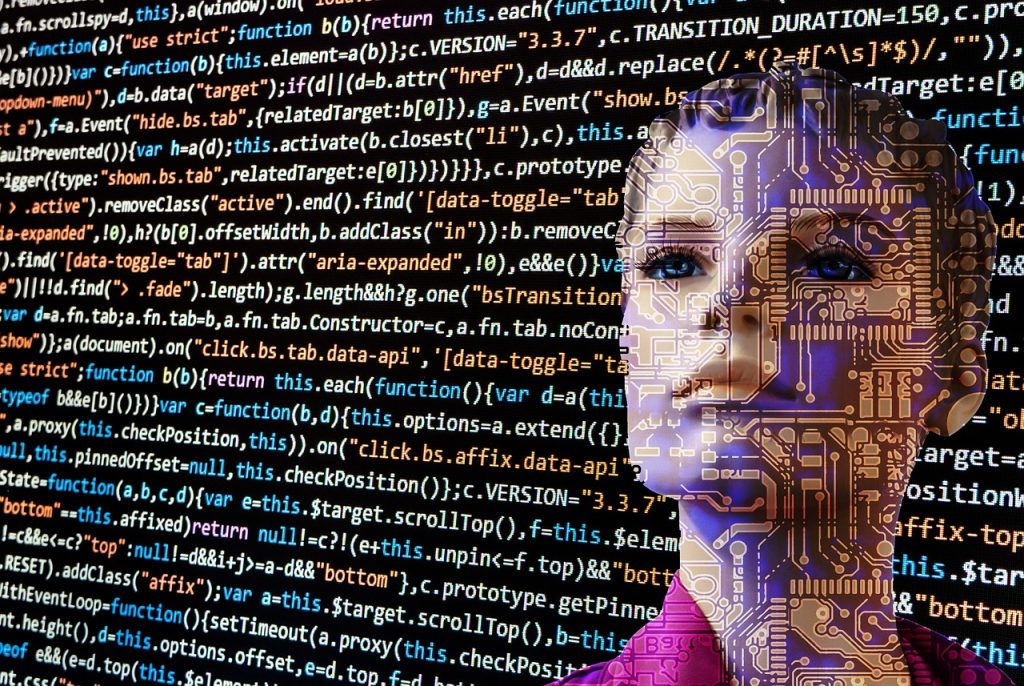In our rapidly advancing world, the integration of Artificial Intelligence (AI) has become an undeniable force. As it continues to shape various aspects of our lives, from healthcare to education, it is crucial that we address the potential ethical implications. How can we harness the power of AI to build a more just and equitable society? By exploring the responsible development and deployment of AI technologies, and working towards inclusivity and transparency, we can strive towards a future where AI acts as a catalyst for positive societal change. With the right measures in place, we can ensure that AI becomes a tool for greater equality and fairness, rather than perpetuating existing biases and inequalities.
1. Ethical Guidelines for AI Development
Artificial Intelligence (AI) has the potential to revolutionize various aspects of our lives, but it also brings forth numerous ethical considerations that must be addressed. To ensure that AI is used to create a more just and equitable society, it is crucial to establish ethical guidelines for AI development. These guidelines should focus on transparency, accountability, and the upholding of fairness and non-discrimination.
1.1 Ensuring transparency
Transparency is essential to build trust in AI systems. AI developers should strive to be transparent about how their systems make decisions and the underlying algorithms. Clear explanations should be provided to users and stakeholders regarding the inputs, models, and processes involved. Additionally, it is vital to disclose any potential limitations or biases in the AI systems to avoid unintended consequences.
1.2 Guaranteeing accountability
AI developers must be held accountable for the actions and decisions made by their AI systems. Mechanisms should be in place to monitor, evaluate, and remediate any harmful impacts caused by AI technologies. Clear lines of responsibility and accountability should be established to ensure that developers are held responsible for the behavior of their AI systems.
1.3 Upholding fairness and non-discrimination
AI systems should not perpetuate or amplify existing biases and discrimination. Specific measures must be taken to mitigate bias and ensure fairness in AI algorithms and decision-making processes. This includes addressing biases in training data, algorithmic design, and testing methodologies. Continuous monitoring and evaluation should be conducted to identify and rectify any discriminatory effects of AI systems.
2. Addressing Bias in AI
Bias in AI systems poses a significant challenge towards achieving a just and equitable society. Addressing and mitigating biases in AI algorithms is crucial to ensure fair and unbiased outcomes. To tackle bias effectively, the following strategies should be employed:
2.1 Identifying and mitigating data biases
AI systems are trained on large amounts of data, and biases present in the data can be inadvertently learned by the algorithms. It is imperative to identify and address biases in the training data to prevent biased outcomes. Data collection practices should be scrutinized to ensure that representative and diverse datasets are used for training AI models.
2.2 Promoting diverse and inclusive development teams
Diverse perspectives and experiences are essential in AI development to counter unconscious biases. Promoting diversity and inclusivity in AI development teams can help identify and mitigate biases, ensuring a more comprehensive and fair approach. Different backgrounds and perspectives contribute to a more comprehensive understanding of potential biases and their impact on different communities.
2.3 Regularly auditing and updating AI systems
AI systems should be regularly audited to identify and rectify biases that might emerge over time. Continuous monitoring and evaluation can help ensure that AI systems remain fair and unbiased. Systematic review processes should be established to address biases promptly and update the algorithms accordingly.

3. Ensuring Access to AI Technologies
Widespread access to AI technologies is essential to creating a more just and equitable society. Efforts should be made to bridge the digital divide, make AI technologies affordable and accessible, and prioritize public access to AI benefits.
3.1 Bridging the digital divide
Access to AI technologies should not be limited to certain segments of society. Steps should be taken to bridge the digital divide by providing equal access to AI infrastructure, tools, and education. Addressing issues of affordability, availability, and accessibility is crucial to ensure that underserved communities can benefit from AI advancements.
3.2 Making AI technologies affordable and accessible
AI technologies should not be restricted to high-cost proprietary solutions. Efforts should be made to develop affordable AI technologies that are accessible to a wide range of users, including individuals, businesses, and governments. This can be achieved through open-source initiatives, collaboration between stakeholders, and supporting research and development of cost-effective AI solutions.
3.3 Prioritizing public access to AI benefits
The benefits of AI should be made available to the public and not remain concentrated solely in the hands of a few. Policies should be implemented to ensure that AI solutions are designed with the aim of benefiting society as a whole. Public-private partnerships can play a crucial role in ensuring that AI innovations address the needs and aspirations of the broader population.
4. Implementing Regulatory Measures
To create a just and equitable society, it is essential to establish comprehensive regulatory measures for AI. These measures should address various aspects, including the ethical use of AI, data privacy, algorithmic accountability, and the prevention of monopolistic practices.
4.1 Establishing comprehensive AI regulations
AI regulations should be formulated to set clear guidelines and boundaries for the development and deployment of AI technologies. These regulations should cover issues such as bias mitigation, algorithmic transparency, and data protection. Collaboration between governments, industry experts, and civil society is essential in developing comprehensive regulations that consider diverse perspectives.
4.2 Monitoring and enforcing compliance
Regulatory bodies should be established to monitor and enforce compliance with AI regulations. This ensures that AI developers and users adhere to ethical standards and legal requirements. Regular audits and assessments should be conducted to evaluate the compliance of AI technologies and take appropriate action in cases of non-compliance.
4.3 Encouraging international collaboration
Collaboration between different countries and regions is crucial in establishing global standards for AI governance. International collaboration can help harmonize regulations and ensure that ethical guidelines are implemented uniformly. Platforms for sharing best practices and experiences should be established to facilitate this collaboration and promote a collective effort towards a just and equitable society.

5. Educating the Public and Promoting AI Literacy
Promoting AI literacy among the general public is vital for fostering a just and equitable society. By raising awareness about the potential impact of AI, providing accessible education and training, and encouraging critical thinking, individuals can make informed decisions and actively participate in shaping the ethical use of AI.
5.1 Raising awareness about AI’s potential impact
Educational initiatives should focus on raising awareness about the capabilities and limitations of AI. Public campaigns, workshops, and community engagements can help dispel misconceptions and encourage a realistic understanding of AI technologies. Emphasis should be placed on the potential societal impact of AI, emphasizing how it can contribute to a more just and equitable society.
5.2 Providing accessible AI education and training
AI education and training should be made accessible to individuals from diverse backgrounds. This includes providing resources, courses, and training programs that cater to different skill levels and learning preferences. Initiatives should be undertaken to promote AI education in schools, universities, and professional development programs, ensuring that everyone has the opportunity to learn about and engage with AI technologies.
5.3 Fostering critical thinking around AI applications
Promoting critical thinking is essential to avoid blind acceptance of AI technologies and their potential implications. Educational programs should encourage individuals to question the ethical and societal dimensions of AI, fostering a culture of responsible AI use. By cultivating critical thinking skills, individuals can actively participate in debates surrounding AI’s impact on society, ensuring decisions are made with a well-rounded perspective.
6. Ethical AI Use in the Criminal Justice System
The use of AI in the criminal justice system has significant ethical implications. To ensure a fair and just legal system, certain considerations must be taken into account when implementing AI technologies in law enforcement, predictive policing, and sentencing processes.
6.1 Developing unbiased predictive policing models
Predictive policing models should be developed and deployed with caution to avoid perpetuating existing biases in law enforcement practices. Thorough testing and evaluation should be conducted to mitigate any potential for discrimination or targeting of specific communities. Continuous monitoring and review of predictive policing models are necessary to ensure their fairness and effectiveness.
6.2 Ensuring fairness in sentencing algorithms
AI algorithms used in sentencing processes should prioritize fairness, considering individual circumstances and avoiding discriminatory outcomes. Human oversight and intervention should be incorporated to review and challenge AI recommendations, ensuring that individual rights and due process are protected. Transparency in the operation of sentencing algorithms is crucial to maintaining public trust in the criminal justice system.
6.3 Safeguarding against invasion of privacy
AI technologies should not compromise individual privacy rights in the criminal justice system. Strict regulations should be in place to govern the collection, storage, and retention of personal data. Safeguards should be implemented to ensure that AI systems do not enable mass surveillance or violate the privacy of individuals. Transparent policies and legal frameworks must be established to protect citizens’ privacy rights.

7. Reducing AI Power Concentration
To create a more just and equitable society, it is essential to reduce AI power concentration. Concentration of AI power can lead to monopolistic practices, exclusion of smaller players, and limited competition. To address this issue, measures should be taken to promote competition among AI developers, prevent monopolistic practices, and encourage open-source AI projects.
7.1 Promoting competition among AI developers
Regulatory measures should be implemented to promote healthy competition among AI developers. This can be achieved through measures such as anti-trust laws, promoting interoperability among AI systems, and facilitating access to AI-related patents and technologies. Encouraging a competitive environment fosters innovation, ensures diversity, and prevents undue concentration of power.
7.2 Preventing monopolistic practices
Efforts should be made to prevent the emergence of AI monopolies that can exploit their dominant market position. Regulatory bodies should closely monitor the activities of AI companies to ensure fair and equal market conditions. Anti-monopoly regulations and policies should be enforced to prevent anti-competitive behavior, guaranteeing a level playing field for all AI developers.
7.3 Encouraging open-source AI projects
Open-source AI projects promote collaboration, knowledge-sharing, and inclusivity in AI development. Governments, organizations, and developers should support and encourage the development of open-source AI initiatives. This enables a more diverse range of stakeholders to participate in AI development and ensures that AI technologies are accessible and adaptable to various needs.
8. Collaboration between Governments, Industry, and Civil Society
The collaboration between governments, industry players, and civil society is essential in shaping the ethical use of AI. By forming multi-stakeholder partnerships, engaging in policy discussions and decision-making, and incorporating public input, a more balanced and inclusive approach to AI governance can be achieved.
8.1 Forming multi-stakeholder partnerships
Collaboration between governments, industry players, civil society organizations, academia, and other relevant stakeholders is crucial in developing comprehensive AI governance frameworks. Multi-stakeholder partnerships facilitate the exchange of expertise, perspectives, and resources, ensuring that AI policies are not biased towards specific interests and capture diverse viewpoints.
8.2 Engaging in policy discussions and decision-making
Governments, industry players, and civil society organizations should actively engage in policy discussions and decision-making processes related to AI. This includes participation in international forums, legislative processes, and public consultations. Transparent and inclusive policy-making ensures that ethical considerations are adequately addressed, and the potential impact of AI technologies is thoroughly assessed.
8.3 Incorporating public input in AI development
Public input should be solicited and incorporated into AI development processes and decision-making. Public consultations, feedback mechanisms, and participatory approaches can help ensure that AI systems reflect the needs and aspirations of the broader population. The involvement of civil society organizations and the general public helps balance the power dynamics in AI governance, leading to decisions that are more representative and equitable.

9. Ethical Considerations in AI Governance
The governance of AI should be guided by ethical principles to safeguard human rights, social well-being, and societal values. Applying a human-centric approach, assessing potential societal impacts, and upholding human rights standards are essential ethical considerations in AI governance.
9.1 Applying a human-centric approach
AI systems should be designed and governed with human needs and well-being in mind. The impact on individual rights, privacy, and societal values should be carefully considered. By prioritizing human-centric approaches, AI technologies can be developed and deployed in a manner that supports and enhances human capabilities, leading to a more just and equitable society.
9.2 Assessing potential societal impacts
Before deploying AI technologies, comprehensive assessments of their potential societal impacts should be conducted. This includes evaluating both short-term and long-term implications on various sectors, such as employment, education, healthcare, and the economy. Anticipating potential challenges allows policymakers and stakeholders to proactively address them and ensure that AI is harnessed for the benefit of society as a whole.
9.3 Upholding human rights standards
Respecting and upholding human rights should be at the core of AI development and governance. AI systems should not infringe upon fundamental human rights, such as the right to privacy, freedom of expression, and non-discrimination. Comprehensive safeguards should be in place to prevent the misuse of AI technologies and to ensure that any potential negative impacts on human rights are swiftly addressed.
10. Continuous Evaluation and Improvement
As societal values and ethical norms evolve, it is crucial to continuously evaluate and improve AI systems and governance frameworks. This involves conducting independent audits and assessments, encouraging AI developers to learn from mistakes, and adapting to evolving social and ethical norms.
10.1 Conducting independent audits and assessments
Regular and independent audits should be conducted to evaluate the ethical and social implications of AI systems. Independent bodies should assess AI algorithms, data practices, and decision-making processes to ensure compliance with ethical guidelines. The findings from such audits should guide improvements and serve as a basis for addressing potential risks and biases.
10.2 Encouraging AI developers to learn from mistakes
AI developers should adopt a culture of learning from mistakes and incorporating feedback into the development process. When issues arise, they should be addressed transparently and rectified promptly. Ensuring that developers acknowledge and rectify mistakes not only leads to continual improvement but also enhances accountability and trust in AI systems.
10.3 Adapting to evolving social and ethical norms
Societal and ethical norms surrounding AI will continue to evolve as technology advances. AI governance frameworks should be flexible enough to adapt to these changes. Stakeholders should actively engage in ongoing dialogue to shape AI regulations, policies, and ethical guidelines to reflect the evolving values of society. Regular reviews and updates of AI governance frameworks are essential to ensure their continued relevance and effectiveness.
In conclusion, creating a more just and equitable society through the use of AI requires the establishment of ethical guidelines, addressing bias, ensuring access to technologies, implementing regulatory measures, promoting AI literacy, considering ethical use in the criminal justice system, reducing power concentration, fostering collaboration, and continuously evaluating and improving AI systems and governance. By prioritizing ethics and engaging in inclusive governance processes, we can harness the potential of AI while safeguarding human rights, promoting fairness, and creating a society that benefits all.










